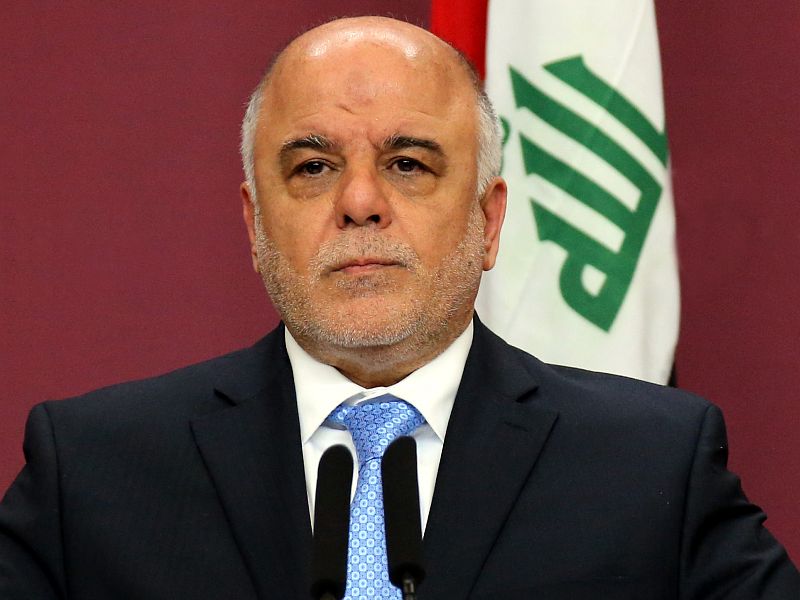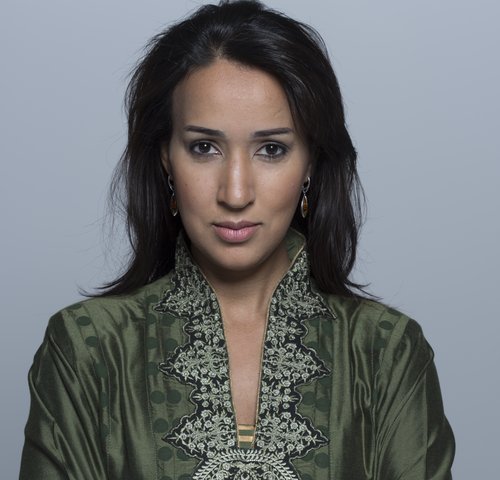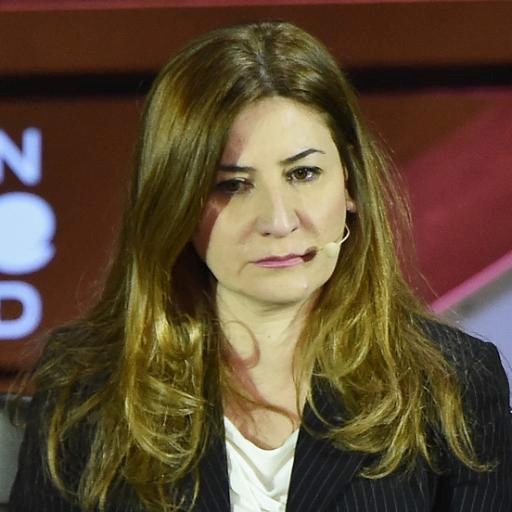Four Arabs listed among Leading Global re-Thinkers for 2017: Foreign Policy
Published: 2017-12-09 12:39
Last Updated: 2024-04-17 22:28
Foreign Policy magazine released its list for Leading Global re-Thinkers for 2017, who participated in reshaping the world during 2017.
The list included four Arab thinkers who, according to the magazine, were among the ‘doers who defined 2017”.

Photo: Iraqi Prime Minister, Haider Al Abadi. (Wikipedia)
The four Arabs in the list were headed by Iraqi Prime Minister, Haider Al Abadi, who was chosen for “putting Iraq back together”, after he achieved the most important victory in 2017, liberating the second largest Iraqi city held by ISIS: Mosul.
Abbadi who “have the toughest job in the Middle East” as described by the magazine, had played a vital role in convincing the different fighting militias in Iraq, to set aside their differences and fight the terrorist group.
“Over the past year, he has driven the Islamic State out of Iraq’s cities, launched plans to reform the country’s massive and corrupt public sector, and mapped out a foreign policy aimed at preventing Iraq from being used as a battleground for regional powers,” and this what makes his success surprising, the magazine said.

Photo: Saudi Activist, Manal Al Sharif. (Twitter)
In the second place came Saudi activist; Manal al-Sharif, Noura Al-Ghanem, Fawziah al-Bakr, and Monera al-Nahedh, who proved that “grassroots activism can improve the lives of women — even in Saudi Arabia”.
This followed Saudi announcement in September to grant women the right to drive to put an end to one of the world’s most discriminatory forms of social control.
Around 47 Saudi women activists set to drive behind the wheels of their cars since 1990, to protest the discriminating regulations. The government oppressed them, suspended them from government jobs, and preachers denounced them as sexually loose women out to ruin the country, the magazine said.
Now, Fawziah al-Bakr is a university professor and sociologist, Manal al-Sharif, a computer scientist by training, Noura Al-Ghanem, is a retired elementary school employee who helped organize the initial protests, and Monera al-Nahedh works at the Arab Thought Foundation, to promote Arab culture.
All of them succeeded in changing the Saudi women lives forever, and other women would follow their steps to transform the role of women in the country.

Photo: The frontman of the Lebanese band Mashrou’ Leila, Hamed Sinno. (Pinterest)
Fourth in the list came the frontman of the Lebanese band Mashrou’ Leila, Hamed Sinno, who was a prominent defender of gay rights in the Arab world.
Especially after Jordan banned his band from playing in the country for the second time, claiming it offends the country’s “customs and traditions”, and Egypt arrested hundreds after waving rainbow flags at their concert.
He used music to stand up for gay rights in the Middle East, while no other figure in the Arab World “delivers such a message to an audience as large as the one Sinno commands”.

Photo: Vian Dakhil, the only female Yazidi member of the Iraqi Parliament. (Twitter)
Then comes Vian Dakhil, the only female Yazidi member of the Iraqi Parliament, who stands to defend the rights of Yazidis in Iraq- a religious minority whom ISIS described as “devil worshippers,” demanding the government to recognize the genocide of Yazidis.
She “has continued her tireless campaign to free members of her community one by one from the clutches of the Islamic State”.
Dakhil has made her phone number available so that “she can be reached day or night in case a captive member of her community manages to make a stealthy phone call to ask for help”.
However, the list also includes French President Emmanuel Macron, the women of the MeToo Movement, the US Senator Kamala Harris, the American comedian Hasan Minhaj, and many others who were part of changing the course of events during the year.

